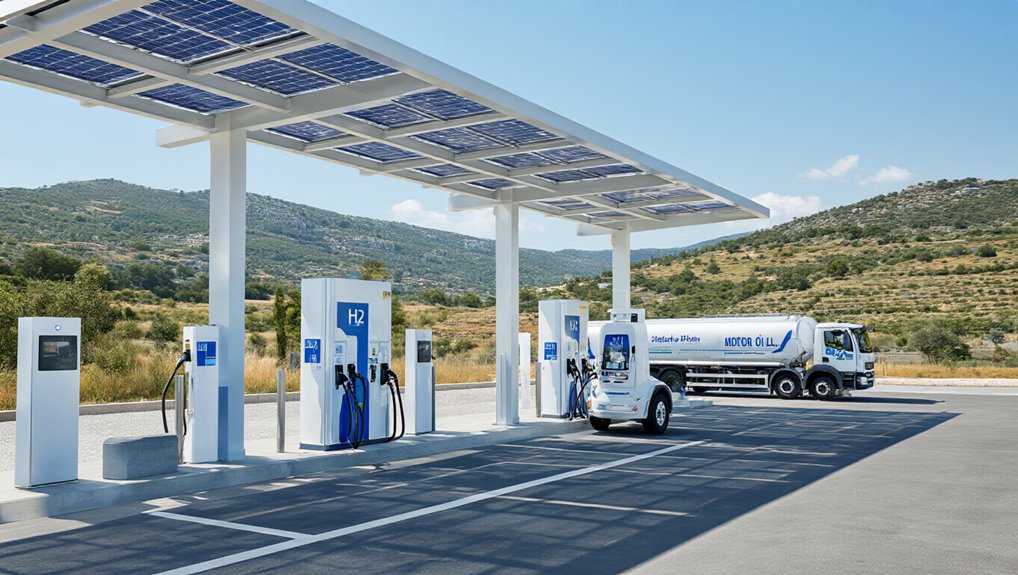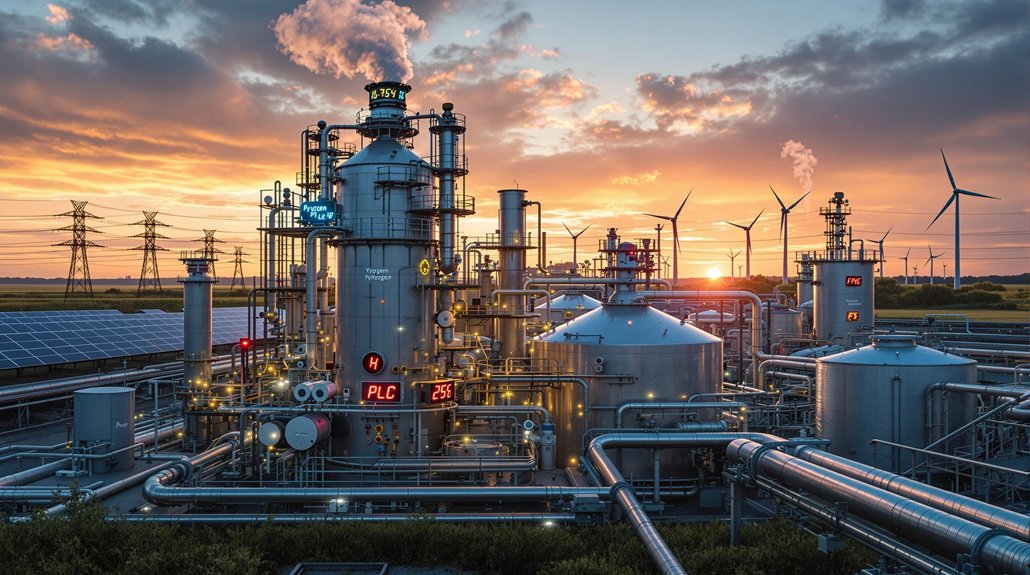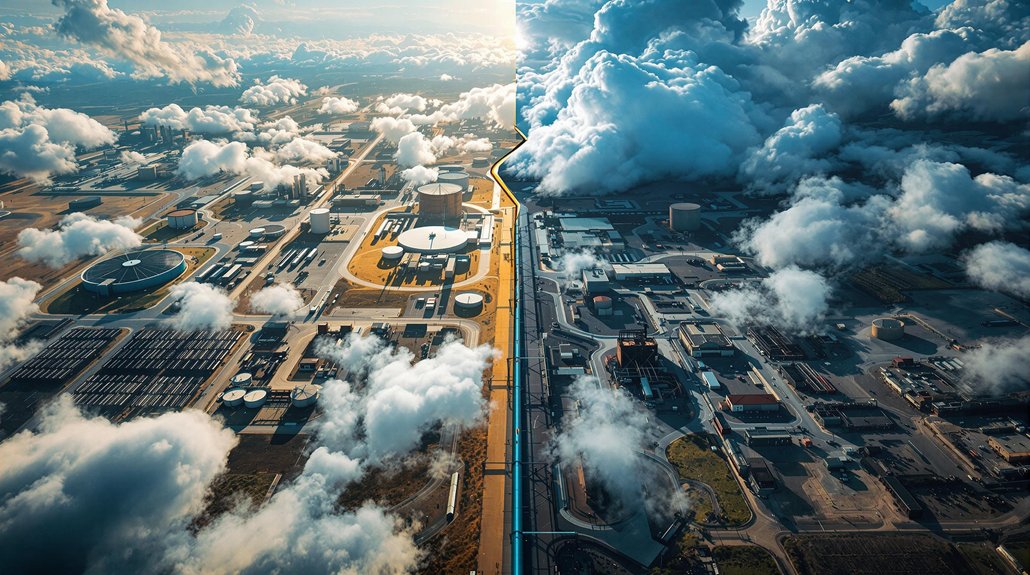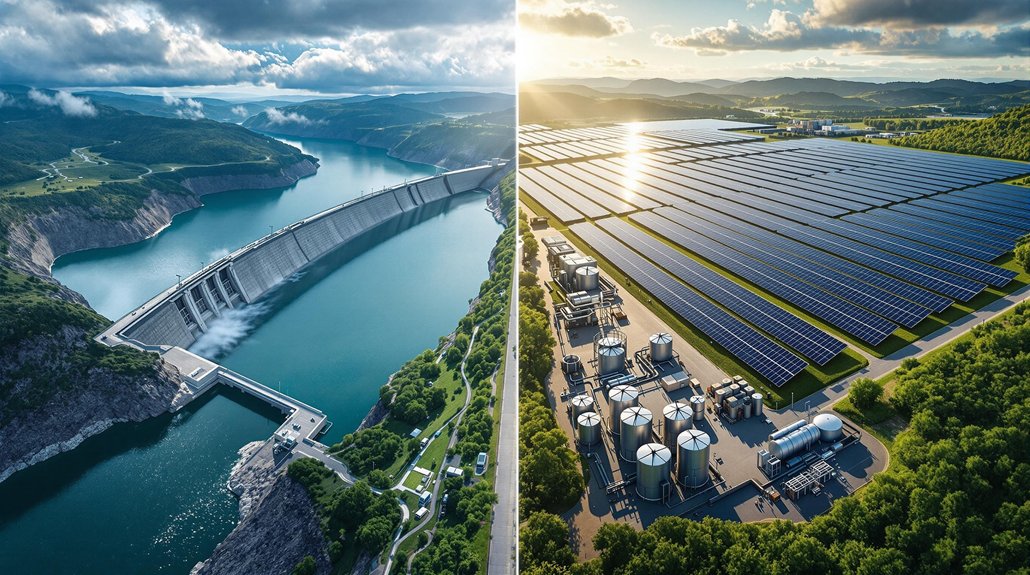Greece just fired up its first public hydrogen refueling station, and suddenly everyone’s acting like the country invented clean energy. Motor Oil Hellas cut the ribbon in 2025, marking what officials call a “national milestone.” Sure, they’re importing hydrogen from Austria right now, but who’s counting?
The station sits waiting for its big brother – a 30MW green hydrogen project scheduled to go live next year. Until then, Greek drivers filling up their hydrogen vehicles can thank the Austrians for keeping the tanks full. It’s not exactly energy independence, but it’s a start.
Greek drivers fill hydrogen tanks with Austrian imports while waiting for domestic production
Greece jumped into a crowded pool. Europe already has 294 hydrogen stations operating, and the global count hit 1,160 by the end of 2024. Another 125 stations popped up last year alone. The hydrogen gold rush is real, and Greece wants its piece. The Europe Gas Tracker database now documents hydrogen infrastructure alongside traditional gas assets, tracking this continental shift toward cleaner fuels.
The government’s throwing money and policies at hydrogen like it’s the answer to everything. Transport, industry, power generation – they want hydrogen everywhere. Private investors are biting too, betting on Greece becoming more than just another tourist destination. They’re eyeing EU funding mechanisms, because why use your own money when Brussels is handing out cash? The EU’s alternative drives mandate specifically encourages infrastructure development for zero-emission fuels like hydrogen.
Hellenic Hydrogen leads the charge on domestic production, promising commercial output and even exports. That’s ambitious for a country that just opened its first station. But Greece’s geography helps – sitting between Europe and Southeast Asia makes it a potential hydrogen highway for the European Hydrogen Backbone initiative. The initiative aligns with global efforts to address climate change, as fossil fuels currently account for 75% of emissions worldwide.
The environmental pitch is obvious. Cut emissions, hit climate targets, create jobs. The economic angle? Less dependence on imported fossil fuels and protection from volatile energy markets. Greece learned that lesson the hard way during recent energy crises.
Motor Oil’s station represents more than just a place to fill up. It’s Greece planting its flag in the hydrogen economy, complete with advanced electrolyzer technology and dreams of self-sufficiency. The station might rely on Austrian hydrogen today, but Greece is betting tomorrow’s fuel will be homegrown, powered by Mediterranean sun and Aegean wind.
References
- https://drivinghydrogen.com/2025/02/17/new-report-there-are-now-1000-hydrogen-refuelling-stations-and-counting/
- https://globalenergymonitor.org/report/europe-gas-tracker-2025-hydrogen-edition/
- https://www.hellenic-hydrogen.gr/wp-content/uploads/2025/05/ΗΗ_Corporate-Presentation_2025.pdf
- https://observatory.clean-hydrogen.europa.eu/sites/default/files/2024-11/The European hydrogen market landscape_November 2024.pdf
- https://www.hydrogeninsight.com/transport/greece-s-first-hydrogen-refuelling-station-opens-with-h2-imported-from-austria/2-1-1831562









